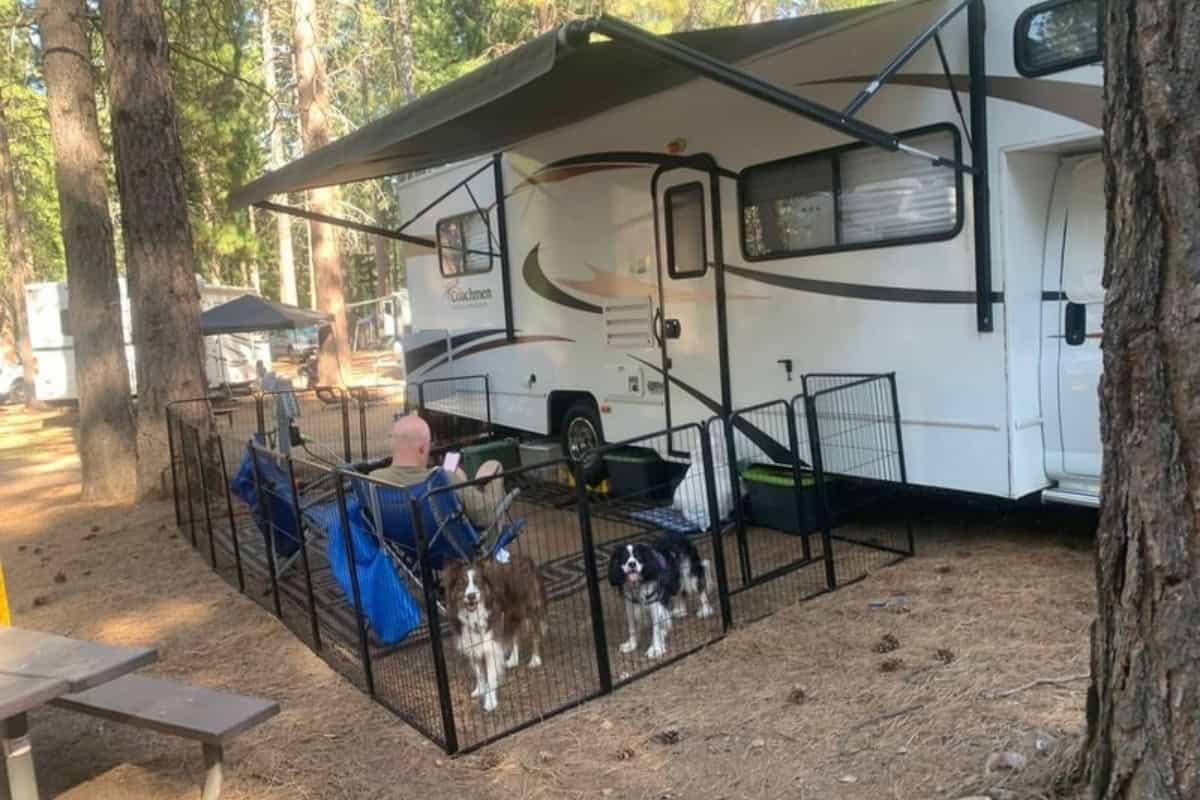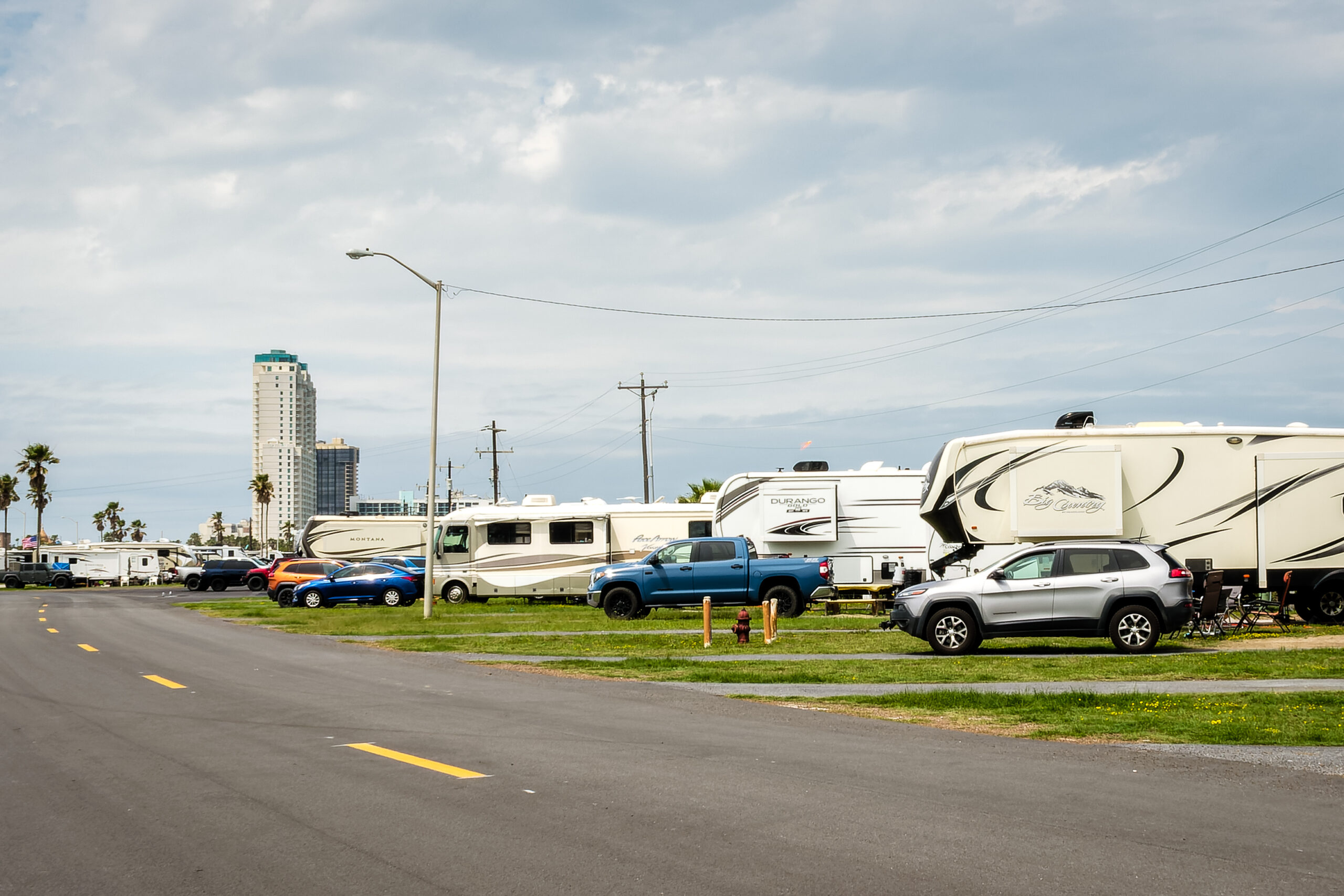As RV enthusiasts, we’re presented with a plethora of choices for our mobile homes, from dry camping in a welcoming friend’s driveway, boondocking on government-owned land, to enjoying the natural beauty of state parks, or opting for nightly rates at privately owned campgrounds. Yet, for those of us who embrace the RV lifestyle wholeheartedly, living on the road full-time, these options might not always fit our needs. For the dedicated nomad, extended stay RV parks emerge as a prime solution.
Wondering what exactly an extended stay RV park entails or if it’s the right fit for your wandering heart? Fear not! As someone who’s embraced the full-time RV life, I’ve navigated through every camping option mentioned, including the allure of extended stay RV parks.
In the forthcoming segments, I’ll delve into the essence of this long-term camping option, providing you with all the details needed to ascertain whether it aligns with your nomadic aspirations.
What are Extended Stay RV Parks?
Extended stay RV parks offer a unique home base for RVers parking long term. Whether you’re eyeing a monthly site with full hookups or considering settling down for a whole season, the flexibility these parks provide caters to a variety of preferences. The decision often hinges on factors like availability, the site type you prefer, and the rental rates, requiring a conversation with the park’s office to determine what they consider an “extended stay.”
This arrangement can offer substantial discounts compared to nightly or weekly stays, not to mention the sense of community and stability. However, diving into this lifestyle also comes with its challenges, including adhering to the park’s policies and the possible requirement of a background check for longer stays.
The Pros of Extended Stay RV Parks
In my experience, there are a number of pros that come with booking a stay at a long-term RV park. These awesome benefits explain why any RVer, from a construction worker to a traveling nurse or digital nomad, might choose to stay in these parks on a regular basis (and sometimes even permanently).
Lower Per-Night Cost
The first and biggest benefit? The cost. Opting for a stay in an RV resort or choosing low monthly rates instead of the usual nightly rate drastically reduces your expenses, allowing you to allocate your budget to other adventures or necessities.
As an example, the KOA near our family in Oklahoma is a little under $100 a night. Meanwhile, an extended stay park just 20 minutes away charged us around $500 a month last time we stayed there. This significant price difference highlights the financial advantage of extended stays.
A Sense of Community
We loved the sense of community we found when staying in a long term campsite. Many of our neighbors remained the same throughout our stay, meaning we were able to make lasting connections. Something you don’t always get when hopping from campground to campground quickly. In many cases, long-term RV parks even host community events such as outdoor pool parties and cookouts.
A Mailbox of Your Own
For those accustomed to the nomadic lifestyle having a consistent place to receive mail and packages is a significant convenience. that extended stay parks offer. It relieves the hassle of constantly finding new delivery locations.
Full-Time Access to RV Park Amenities
If you’re choosing between staying in a sticks-and-bricks home and an extended-stay RV park, it’s good to remember that many RV parks offer amenities. In some cases, these amenities are similar to what you’d find in an apartment complex. But sometimes they are even better, making the long-term campsite an awesome deal.
Some amenities you might find at such parks include pools, hot tubs, gyms, dog parks, laundry facilities, and playgrounds.
More Time to See It All
If you’re a traveler trying to decide if you want to stay put for a month or two in an extended stay park, you might appreciate the extra sightseeing time that a long-term stay can give you.
Many people make the mistake of jumping from place to place too quickly while traveling full-time. Picking a long-term campsite to call home for a month or more will ensure you have plenty of time to explore the place in depth.
The Cons of Extended Stay RV Parks
Wondering what the cons of extended stay RV parks are? Unfortunately, there are some of those as well. Be sure to consider the drawbacks below before making your final decision.
Less Space AND Less Adventure
For many full-timers, the lack of living space in an RV is made bearable by the fact that their yard is always changing, giving them new things to see and do outside of their tiny home. Meanwhile, folks with wanderlust who must sit still for whatever reason can sometimes be consoled when offered a larger living space than an RV has to offer.
Stationary RV living removes both the extra space with tight RV sites and the extra adventure, something some people may not be able to deal with for long.
Neighbors Don’t Change
Okay, I know I mentioned the unchanging neighbors as a pro earlier. That said, this can also be a con. When you’re in a traditional campground and don’t like your neighbors, you can rest easy knowing they’ll move soon enough (if you don’t move first). Unfortunately, this isn’t usually the case at extended stay RV parks, something that can become a problem if you end up parked near rude people.
You Pay Your Own Bills
Often, extended stay RV parks require residents to pay for some or all of their own utilities. If you’re used to paying for nightly stays at campgrounds, this can come as a surprise. And some might consider the extra budgeting required to be a con.
That said, in my experience, the utility bills were generally quite low. Even with the bills factored in, the per-night cost of a long-term stay was still significantly less than that of a short-term RV park.
Potential RV Issues
RVs really aren’t meant to sit still for long. While sitting for a month or two probably won’t hurt anything. Sitting in one spot for 6+ months could cause problems with tires, wheels, and axles, as well as issues under the hood if you happen to own a motorhome. Be sure to keep up on maintenance.
Should You Choose an Extended Stay RV Park?
Still not sure about booking an extended stay RV park? Here’s something to consider. An extended stay RV park is a wise choice if you’ll be in one spot for several months. It’s a cost-effective alternative to nightly stays or renting a traditional home. However, if you enjoy the thrill of moving frequently, short-term campgrounds might be more your speed.
Deciding on an extended-stay park? Be sure to get clear on the contract terms. Understand the length of stay, when rent is due, and your responsibilities for utilities. It’s also smart to budget for any bills not covered by your rent. Maintenance is key, too. Pay particular attention to your RV’s wheels, tires, and engine to avoid any surprises.




What about age of motorhomes, for instance. If real nice looking.